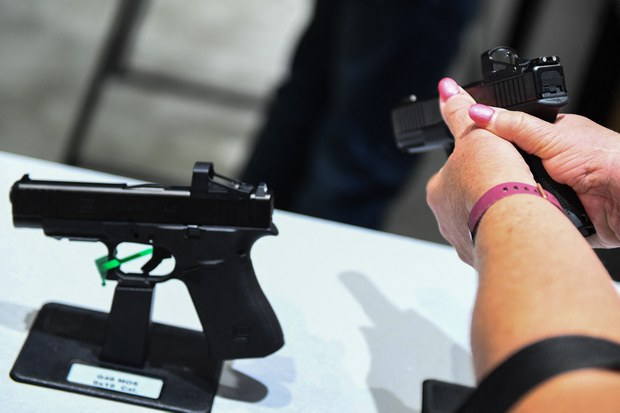Nay Pyi Taw, February (12)
On January 31, the military council’s Ministry of Home Affairs announced the right to carry firearms for civilians and civil servants who really need weapons for security.
The principle of the right to bear arms and ammunition, which includes 13 chapters and 34 articles issued by the previous Ministry of Home Affairs’ decree No. 55 of 1977, has also been annulled.
The statement also stated that the provisions contained in the notices, instructions of the existing arms law and regulations must be applied in accordance with the principle of the right to bear arms and ammunition.
The types of firearms permitted under a firearms license include revolvers 38 inches and smaller, pistols, shotguns, hunting rifles, and air rifles.
In addition, the types of firearms allowed to be carried under the permit include pistols with a point of 38 inches and wider caliber than that, rifles, and machine gun groups, and those must have been registered with the relevant township police.
It is stated that an applicant for a firearm permit must be a person who really needs to carry a firearm for security purposes, and must not be a person who disturbs national security, regional security, law and order, and stability.
U Gyi Myint, a veteran lawyer, criticized the military council for arming those associated with them under the principle of the right to bear arms, and said that they can kill the democratic forces at any time rather than defending themselves.
Civilians, civil servants and military personnel are eligible to apply for the right to carry firearms, and they must be those who have never been charged with a security crime, the statement said.
It is said that those who have the right to carry firearms, either with a license or a permit, are responsible for complying when directed by authorities or civil service organizations to help maintain local security, rule of law, and stability, as well as to prevent and suppress crimes.
Dr. Sai Kyi Zin Soe, a political analyst, criticizes the military council for deliberately creating conflict between the people as the regime has become difficult to provide security to those related to them.
The military council has issued martial law to 37 townships in eight regions and states, and there are conflicts with ethnic armed resistance organizations (EROs), including the People’s Defense Force (PDF), almost all over the country.
Since the military coup, the revolutionary forces have shot and killed administrators, militia groups, and informants who have supported the army’s subordinates, while the military council has killed NLD party members and democracy activists.
Nearly 3,000 citizens were reportedly killed in the crackdown on protests and interrogations in the two years following the coup, according to the Assistance Association for the Political Prisoners (AAPP).
The military regime claimed that more than 5,400 people had died, including departmental personnel, administrators, monks, children, and civilians, but ISP-Myanmar noted that the data could not be independently verified.
News-Than Lwin Times
